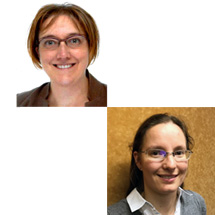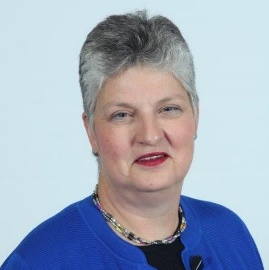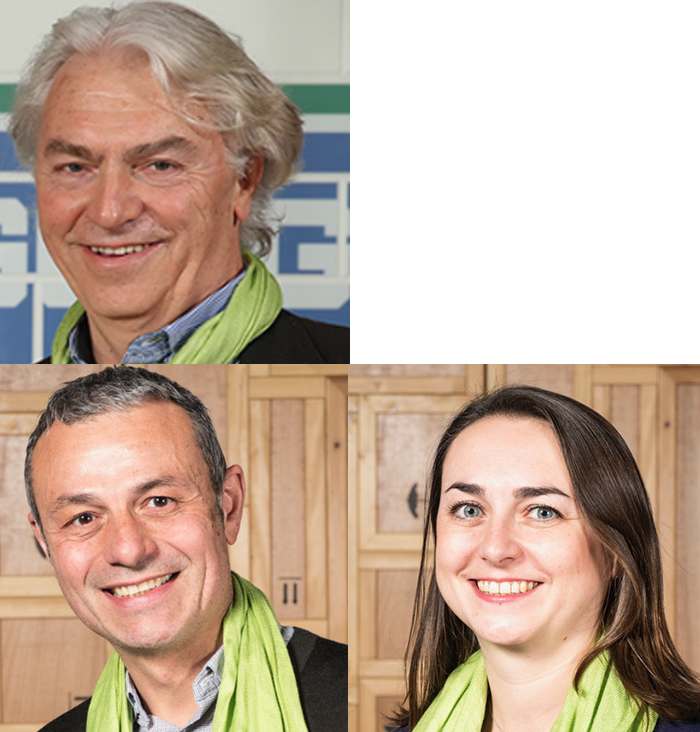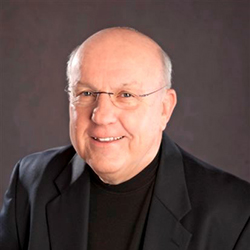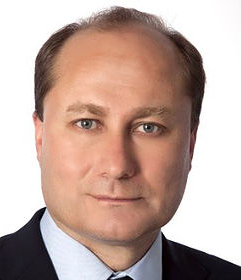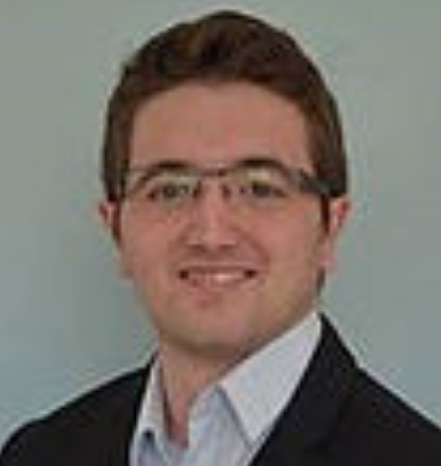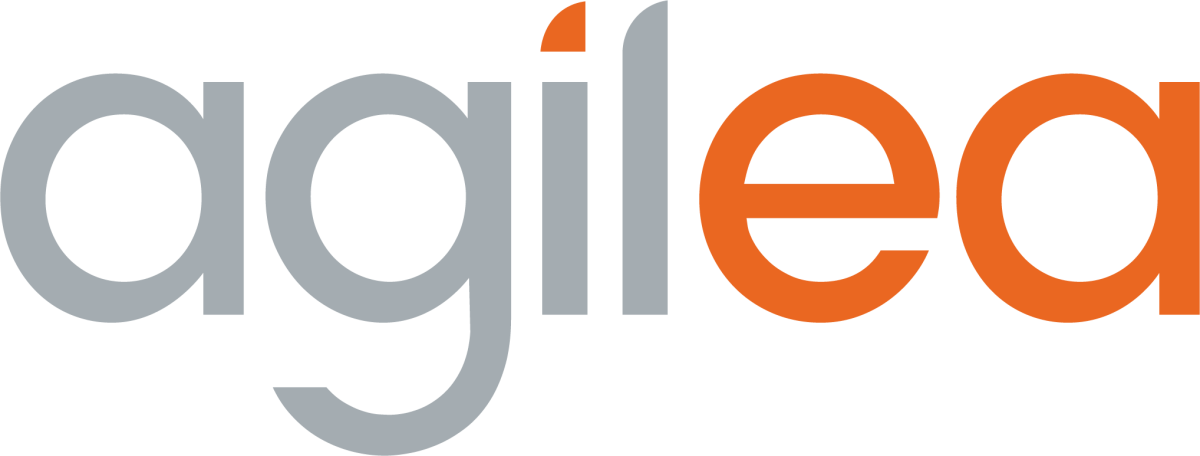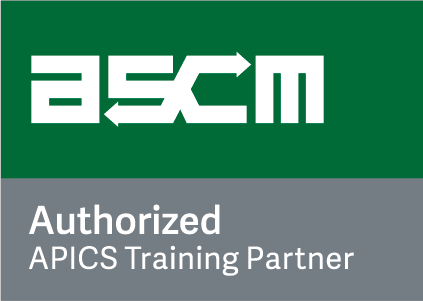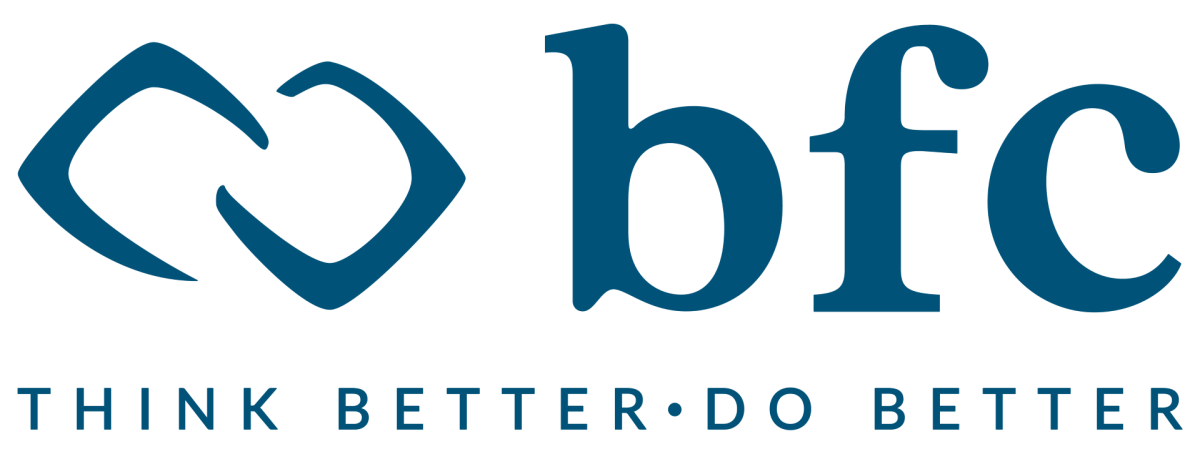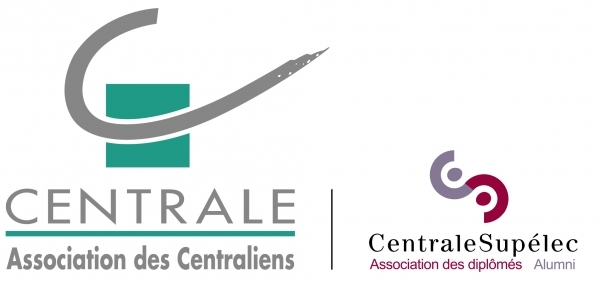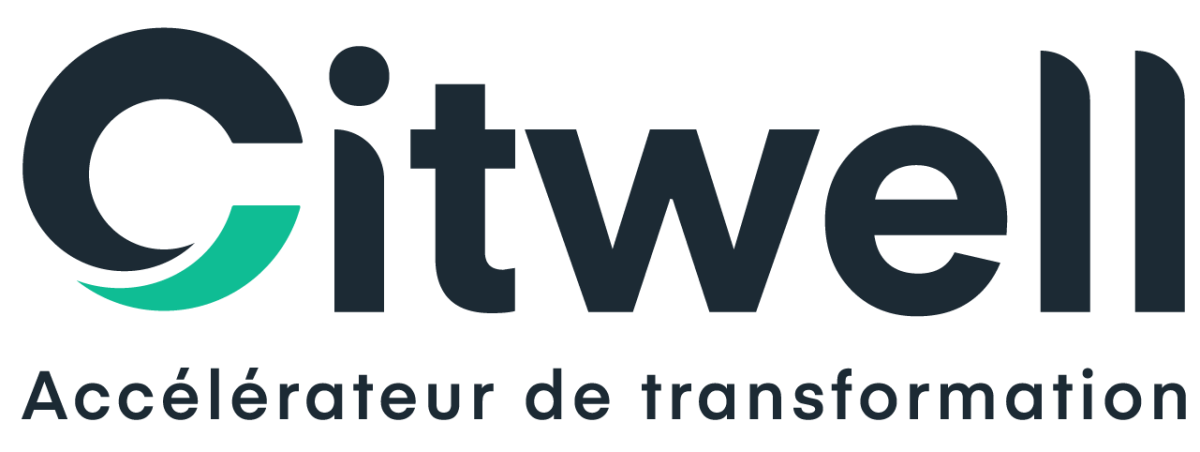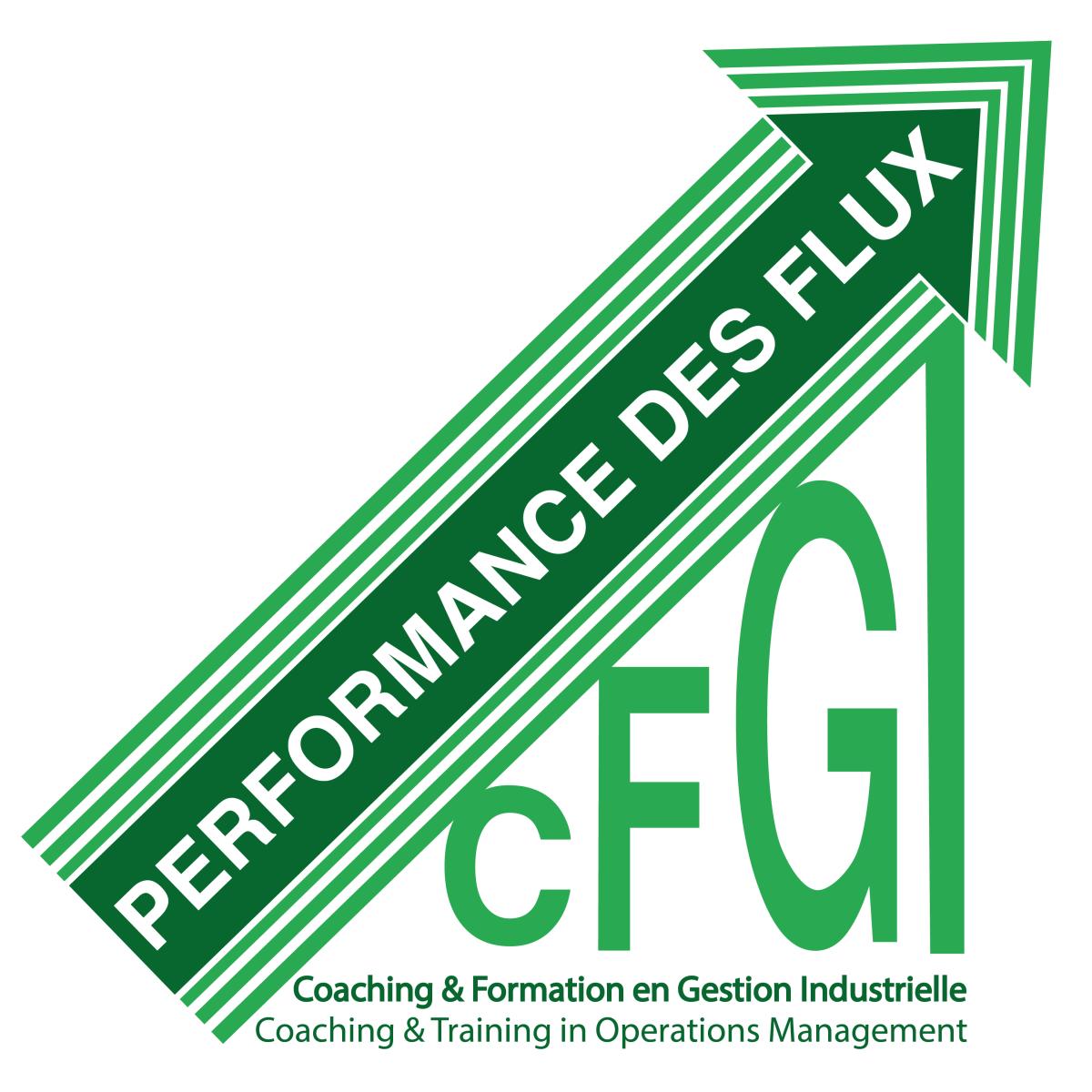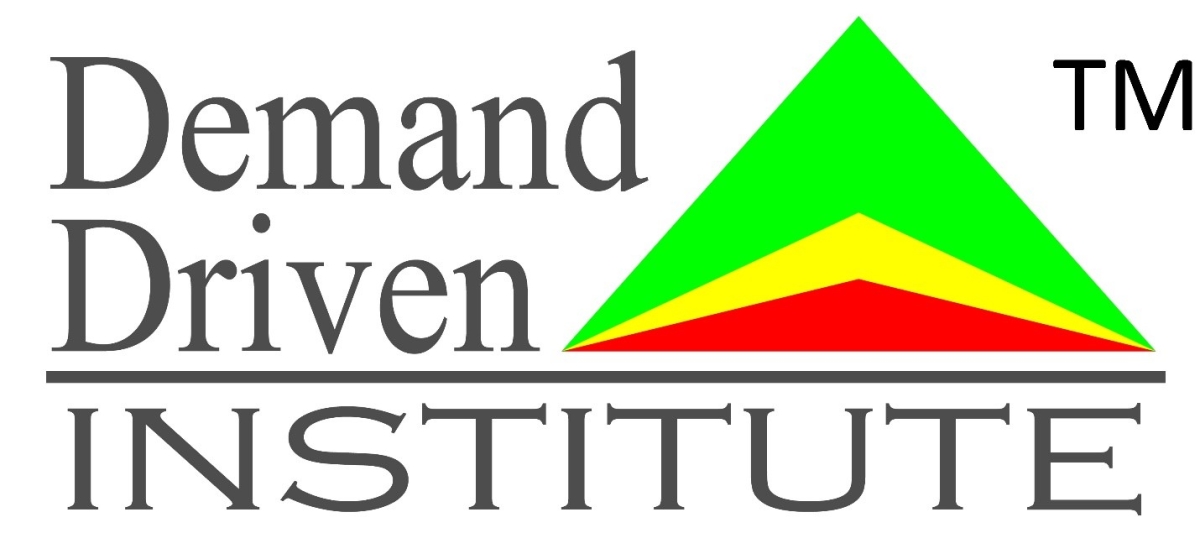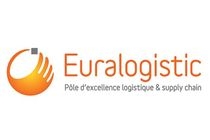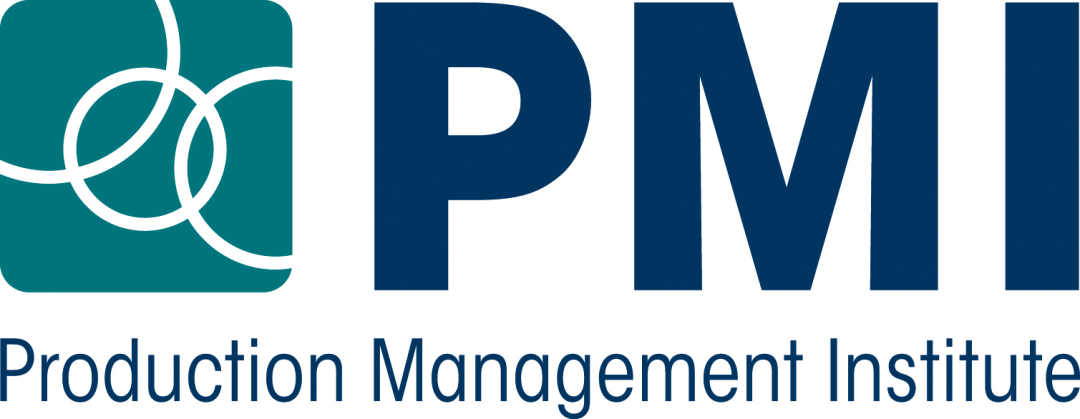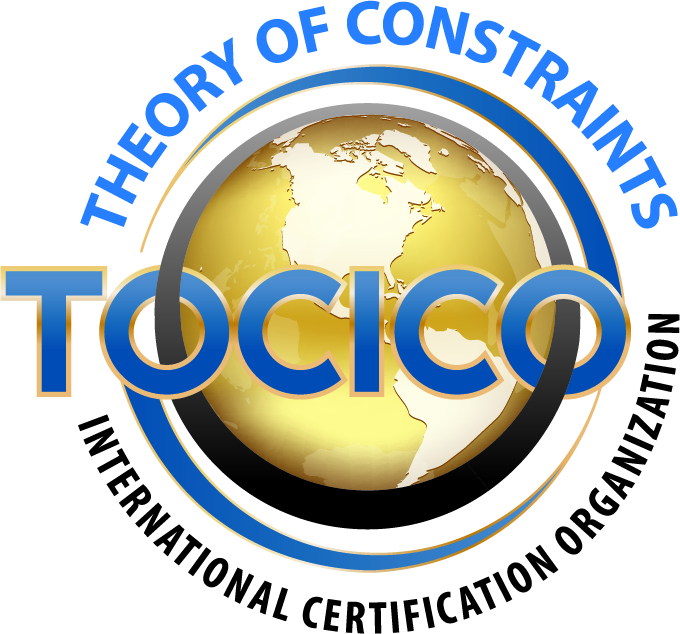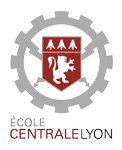Responsible &
Demand Driven Supply Chains
Lyon FRANCE 5-7 July 2017
Conferences
|
FR French |
EN English |
EN + FR Franglish |
Wednesday 5, from 2 PM to 6 PM
DD étude de cas : SAMES KREMLIN Pilote et déploiement sous Excel : le pour et le contre pour gérer le changement
SAMES-KREMLIN a mis en place un pilote DDMRP sous Excel sur les sites de Stains et Meylan et déploie la méthodologie sur lensemble de son activité (33000 sku - environnement MTS/ATO/MTO/ETO). Les résultats ont été obtenus par à la gestion du changement. Sans outil spécialisé, le déploiement a été audacieux et aurait pu être optimisé.
Leila BOUHALI, CPIM, CSCP, GB Lean, CDDP, CDDL
Leïla a mis en place DDMRP chez SK sur Stains depuis deux ans. Elle a été consultante en SCM, planificatrice dans lagroalimentaire et chef de projet ERP.
Audrey MOUGEOT, CDDP
Audrey travaille depuis 10 ans la gestion des flux et la planification des projets ETO et MTO. Elle a géré le pilote DDMRP sur Meylan et déploie DDMRP sur les projets.
Closing key note : Demand Driven Adaptive Enterprise DDAE
The Demand Driven Adaptive Enterprise Model is a management and operational model designed to enable enterprises to adapt to complex and volatile environments. The model utilizes a constant system of innovation and feedback between three primary components; a Demand Driven Operating Model, Demand Driven S&OP and Adaptive S&OP. A Demand Driven Adaptive Enterprise focuses on the protection and promotion of the flow of relevant information and materials across the strategic and operational relevant ranges in order to drive sustained return on equity performance.
Carol PTAK, CFPIM, CIRM, Jonah, CDDP, CDDL
Carol Ptak is currently a partner with the Demand Driven Institute. A leading authority in the use of ERP and Supply Chain tools to drive improved bottom line performance, Ms. Ptak's expertise is well grounded in four decades of practical experience as a successful practitioner, consultant and educator in manufacturing operations. Her pragmatic approach to complex issues and dynamic presentation style has her in high demand worldwide on the subject of how to leverage these tools and achieve sustainable success.
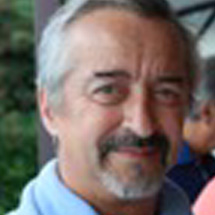
Des SC Responsables : 6PL, seul label RSE français ciblé sur les activités logistiques
6PL, seul label RSE français ciblé sur les activités logistiques proposant une analyse des performances dans 5 domaines : gouvernance de lentreprise, performances économiques, sociales, environnementales et gestion de lénergie sur un référentiel coconstruit avec les entreprises. Label décerné dès que lentreprise sengage à saméliorer. 6PL est soutenu par les pouvoirs publics, lADEME et répond à France Logistique 2025.
Richard FROUMENTIN
Richard intervient en tant quexpert sur le projet Label 6PL développé par Logistique Seine-Normandie (LSN) depuis 2014. Pendant plus de 30 ans, il a occupé des postes de Direction dans les domaines de la logistique et des transports internationaux. Depuis 5 ans, il dirige CARGOnet, cabinet de conseil dont lune des spécialités est la conception de Chaînes Logistiques Durables -Responsables.
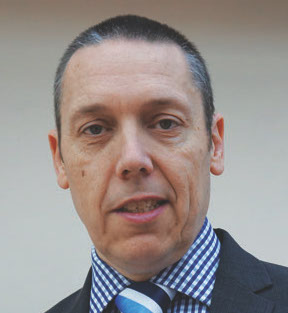
DD case study : British Telecoms Demand Driven Journey, a case study exploring BTs implementation of DDMRP and its demand driven journey to date
British Telecom started its demand driven journey in 2015, firstly with education, then a pilot, and now full scale enterprise roll out. Brian will share the journey to date looking at developing & implementing the pilot along with the results achieved through to scaling up to deliver on an enterprise level. He will also share how BT are developing their DDS&OP process and some of the lessons learnt along the way.
Brian DOOLEY
Brian has over 20 years experience in supply chain planning within both consulting and senior operational roles, this uniquely allows him to leverage his consulting skills and knowledge of best practice with the pragmatic realities of the operational world. He joined BT in 2015 to lead the development and implementation of their supply chain planning process, an exciting and significant transformation program that challenges some conventional approaches and embraces the emerging concepts of demand driven .

DD étude de cas : Success stories DDMRP
Présentation des retours dexpériences de mise en place de démarches Demand Driven par nos clients.
Grand acteur du Luxe : construire une planification agile et pertinente même en environnement saisonnier
Industrie des solutions de toiture : Optimiser lutilisation des capacités grâce au DDMRP
Anaïs LEBLANC, CSCP, CDDP, CSCA, Black Belt Lean 6 Sigma, IMCM, TFC
Senior Manager chez Citwell, Anaïs accompagne la transformation des industriels et distributeurs depuis plus de 12 ans, en pilotant des projets sur les business model, organisations, processus & SI supply chain, services et maintenance. Membre active de Fapics depuis 2012, elle est investie dans les réflexions innovantes de la Supply Chain, en particulier la révolution Demand Driven, futur de la planification et de lexécution des entreprises gagnantes.
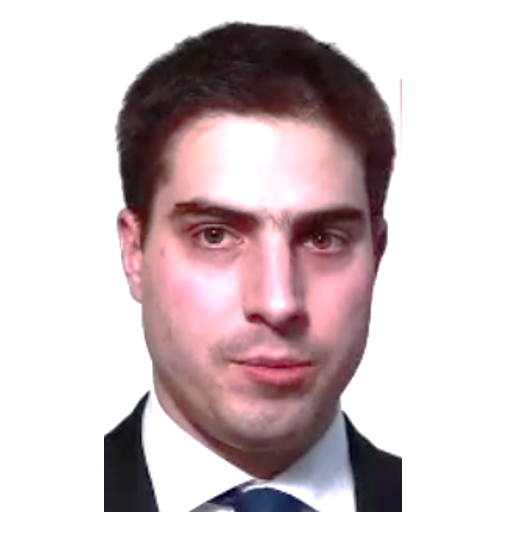
DD étude de cas : Industrie des solutions de toiture : Optimiser l'utilisation des capacités grâce au DDMRP
Bertrand DUPARC PONSIN, Directeur des Achats et Supply Chain
Depuis près de 15 ans, Bertrand mène sa carrière dans le domaine des achats dans lindustrie, principalement chez Vallourec puis chez un expert des solutions de toitures, en tant que Directeur Achats et Supply Chain
Des SC Responsables : United Nations Global Compact France « Entreprises et RSE, agir tout au long de sa chaîne de valeur »
Le Global Compact des Nations Unies rassemble entreprises, organisations, agences des Nations Unies, monde du travail et société civile autour de dix principes universellement reconnus pour construire des sociétés plus stables et inclusives. Cadre d'engagement volontaire, référentiel international, plateforme d'actions et d'échanges, le Global Compact est la plus large initiative mondiale en matière de responsabilité sociétale avec plus de 12.000 participants dans 170 pays. Relais local officiel en France, le Global Compact France rassemble plus de 1200 entreprises et près de 100 organisations à but non lucratif. Le Global Compact France offre à tous types dentreprises et dorganisations à but non lucratif un lieu déchange stimulant pour initier, développer et partager leurs démarches de responsabilité sociétale.
Site internet : https://www.globalcompact-france.org/
Anthony RATIER
Après des études en sciences politiques et en affaires européennes à Bordeaux et Bruxelles, Anthony Ratier a travaillé dans le domaine international et de la RSE pour la société civile, un partenaire social, une SSII, la Commission Européenne. Fort de plus de 10 ans d'expérience dans la RSE et les instances internationales, Anthony Ratier a rejoint le Global Compact France en tant que Responsable Droits Humains et Objectifs de Développement Durable. »
Marine LE QUILLEUC
Diplômée dun Master II en Économie Sociale et Solidaire, Marine Le Quilleuc est actuellement Responsable Administrative et Financière au Global Compact France. Elle conseille par ailleurs au quotidien les organisations membres dans le déploiement de leur stratégie RSE et les accompagne dans la rédaction et la relecture de leur reporting annuel. »
Des SC Responsables : Conférence de lAgence du Don en Nature et Euralogistic, pôle dexcellence en logistique et supply chain des Hauts de France « La Supply Chain du Don »
Lagence du Don en Nature et les partenaires Fapics, Euralogistic, pôle dexcellence en logistique et supply chain des Hauts de France et ISEL, lInstitut Supérieur des Etudes Logistiques de lUniversité du Havre interviennent dans la formation des bénévoles des associations partenaires dADN en professionnalisant leur démarche de supply chain management. Leur intervention mettra un coup de projecteur sur des actions pleines de sens en faveur des plus démunis grâce à la mise en place de méthodes de supply chain management plus performantes et responsables.
Christian RINGUET
Christian RINGUET a occupé des fonctions de dirigeant dans plusieurs groupes (Rhone-Poulenc, Scotts, SEB). Ancien dirigeant de l'activité Articles Culinaires du Groupe SEB et Président de Téfal, il a souhaité mettre ses compétences au service de la lutte contre lexclusion par le don de produits et préside aujourdhui lAgence du Don en Nature.
Michel BRUNEAU
Après une expérience dans la grande distribution aux achats puis au marketing suivi de 10 ans à l'agence Excel/TBWA dans la conduite d'opérations de collecte et de communication au profit d'associations caritatives, Michel BRUNEAU a rejoint naturellement l'économie sociale et solidaire et l'équipe ADN pour participer à son développement en tant que Directeur des partenariats entreprises et du marketing.
Sandrine RUFFET
Diplômée en Supply Chain avec une formation en gestion, Sandrine a occupé plusieurs postes dans lindustrie automobile et a ensuite travaillé dans une PME pour la grande distribution. Elle a rejoint lAgence du Don en Nature comme responsable Supply Chain pour ses valeurs humaines, sociales et environnementales et pour apporter toute son énergie, ses compétences et sa passion pour la Supply Chain.
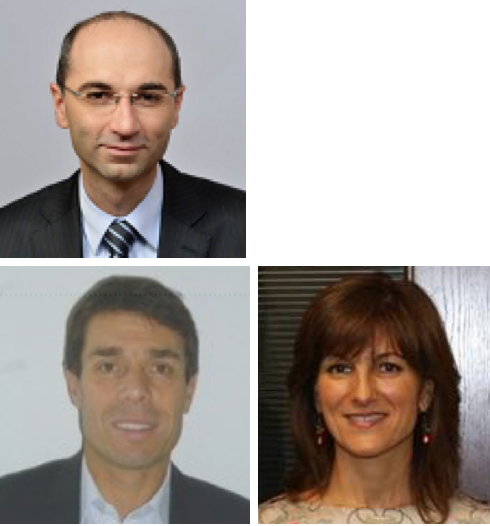
Des SC Responsables : Des Achats Responsables au cur de la Supply Chain
Nombreuses sont les entreprises qui développent une politique RSE et avec celle-ci une charte éthique et RSE pour la fonction Achats. Quelles sont les pratiques courantes lorsque nous parlons dachats responsables ? Comment les fonctions Achats et Supply Chain sont-elles capables déchanger et de décider ensemble pour intégrer les critères RSE ? Un politique RSE induit-elle une complexification de la Supply Chain ? Comment limpact de la politique RSE est-il mesuré ? Autant de questions auquelles cette table ronde tentera de répondre !
Nicolas HULLOT, CDDL :
Actif depuis dix ans dans le monde de la Supply Chain, et plus particulièrement des Achats et des Approvisionnements, Nicolas a développé son énergie pour faire monter en maturité les structures Achats quil a dirigées. Il a participé à lintroduction de DDMRP et du Serious Game Fresh Connection chez Bernard Controls. Fort de ces expériences, il est devenu administrateur et trésorier adjoint de Fapics en 2016.
Philippe BOISSEAU :
Philippe est Directeur Général et Associé chez MERCURIAL, Groupement dachats pour 400 PME et ETI industrielles, Conseils, Formations et délégations dachats. Pour MERCURIAL, la compétitivité des achats, intégrés dans la Supply Chain, passe par le partage des bonnes pratiques et la mutualisation des négociations.
Isabelle LUIS :
Après avoir occupé la fonction de Category Manager Consommables pendant 10 ans, Isabelle est maintenant Responsable des Achats Durables au sein de la Direction Sourcing & Procurement. Elle est en charge du déploiement du Supplier Sustainability Program qui vise à impliquer les fournisseurs dans la mission et l'approche de développement durable dESSILOR. Cette démarche permet de continuer à alimenter une croissance durable et mutuelle avec lensemble de ses parties prenantes.
Des SC Responsables : La Stratégie nationale France logistique 2025 et le référentiel RSE en logistique
Suite à un amendement parlementaire, les pouvoirs publics français, en lien avec les fédérations et associations professionnelles, ont élaborés une stratégie nationale, adoptée en Conseil des ministres en mars 2016.
Certaines propositions contenues dans cette Stratégie commencent à être mises en uvre. Cest notamment le cas dun référentiel RSE en logistique dont le plan de consultation et dadoption sera présenté en avant-première.
Laurent GREGOIRE :
Laurent Grégoire est membre d'honneur de Fapics, président de la Section thématique Logistique et Supply chain de la Commission Nationale des Services du Ministère de l'économie.
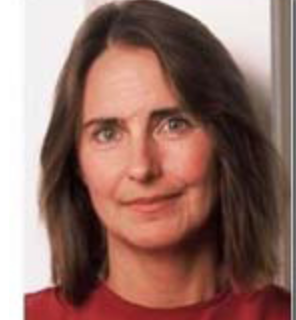

DD case study : MIBA BEARINGS journey in implementing a full DD Operating Model and DD S&OP
Miba Bearings US is a specialist for high performance diesel and gas engines bearing applications and production. Hear how about their journey in implementing a full Demand Driven Operating Model (DDOM) and Demand Driven S&OP and how they are leading the way as a model for replication throughout the global Miba Corporation.
Bernie ANDERSON President at Miba Bearings US
Debra Smith, CPA, EMBA, TOCICO
Debra A. Smith is the co-founder and Managing Partner of Constraints Management Group (CMG). Together with her partners (past and present), CMG is responsible for much of the development and practical application of the methodology, processes and software development known as Demand Driven MRP and the Demand Driven Operating Model. She has been the driving force in the development and application of flow-based metrics and her clients span across all industries and five continents.
DD case study : STEMCELL TECHNOLOGIES a highly unique DDMRP implementation
Stemcell Technologies is a privately-owned biotechnology company that develops specialty cell culture media, cell separation products and ancillary reagents for life science research. Driven by science and a passion for quality, STEMCELL delivers over 1500 products to more than 70 countries worldwide. Hear about their highly unique DDMRP implementation.
Joffrey HEDONT Planning and Inventory Analyst from Stemcell Technologies
Joffrey is a french engineer specialized in supply chain and lean managment.After 4 years in a pharmaceutical industry as a project manager he joined Stemcell's technologies as a planning and inventory Analyst in 2015. Stemcell just had implemented ddMRP and Replenishment+ and his work was dedicated to develop this methdology in Europe.
Debra Smith, CPA, EMBA, TOCICO
Debra A. Smith is the co-founder and Managing Partner of Constraints Management Group (CMG). Together with her partners (past and present), CMG is responsible for much of the development and practical application of the methodology, processes and software development known as Demand Driven MRP and the Demand Driven Operating Model. She has been the driving force in the development and application of flow-based metrics and her clients span across all industries and five continents.
Closing keynote : At the Leading Edge of the Demand Driven Operating Model
Debra Smith will share the latest insights and developments of implementing and sustaining a Demand Driven Operating Models (DDOM). Topics will include model definition, metrics, analytics and feedback loops.
Debra Smith, CPA, EMBA, TOCICO
Debra A. Smith is the co-founder and Managing Partner of Constraints Management Group (CMG). Together with her partners (past and present), CMG is responsible for much of the development and practical application of the methodology, processes and software development known as Demand Driven MRP and the Demand Driven Operating Model. She has been the driving force in the development and application of flow-based metrics and her clients span across all industries and five continents.
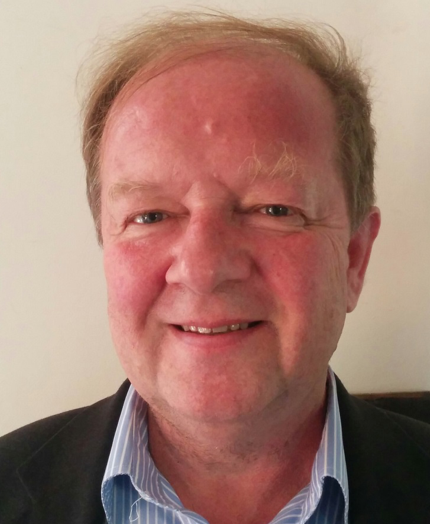
DD case study : Michelin decoupling points
Michelin has a six level integrated supply Chain from customer to supplier. In this context, decoupling point using DDMRP approach seems to be extremely powerful to cut bullwhip effect, reducing inventory and increase service and industrial performance.
Thibaut d'Herouville will present. He is currently in charge of the industrial supply chain for Michelin Group leading a transformation program including DDMRP concept. He has been a Supply Chain Manager for different business units in Europe, Asia and North America.
DD étude de cas : Michelin Points de découplage
Michelin a une Supply Chain fortement intégrée à 6 niveaux. Dans ce contexte, mettre en place des points de découplage semble très efficace pour couper la propagation de la variabilité, augmenter le service, réduire les stocks et lisser la production
Thibaut DHEROUVILLE
Responsable de la supply chain industrielle pour le Groupe Michelin en charge d un programme de transformation incluant les concepts DDMRP. A été en charge de plusieurs postes de Supply chain manager pour des entités Européenne, Nord Américaine et Asiatique.
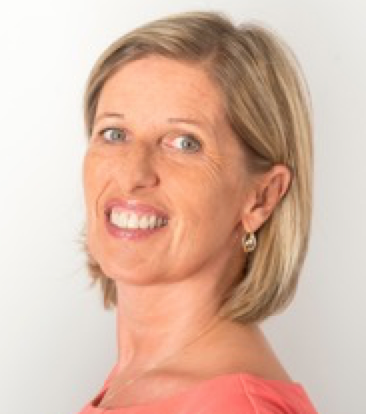
Des SC Responsables : Leadership et excellence collective
Comment la transformation individuelle permet la transformation collective? Focus sur certains catalyseurs qui permettent de concilier bien-être au travail et performance.
Sophie LE BIHAN
Entrepreneuse et vice présidente de linstitut français du leadership positif, Sophie est spécialiste de laccompagnement individuel et collectif de Dirigeants et Managers sur leurs enjeux de transformation. 15 ans dexpérience en RH chez les leaders des produits de la Grande Consommation : Colgate-Palmolive, Kelloggs. Ses valeurs : authenticité, optimisme et pleine attention (à soi et aux autres).
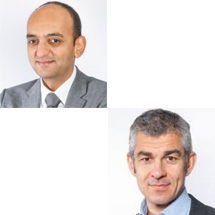
Serious game The Fresh Connection avec DDMRP inside.
Venez découvrir Demand Driven MRP en jouant à The Fresh Connection. The Fresh Connection est un serious game en ligne qui vous met au défi de sauver une entreprise, en prenant des décisions concertées de gestion de la chaine logistique. Au cours de cette présentation animée par aXoma consultants, vous constaterez comment DDMRP améliore la performance et simplifie la prise de décision du rôle VP Supply chain.
Christophe ALAGAPIN, CPIM, CDDP
Christophe est senior manager chez aXoma Consultants, partenaire de Fapics. Christophe a occupé des fonctions opérationnelles en supply chain management pour Baxter Healthcare. Puis il a mené des missions damélioration de performance et de mise en uvre de systèmes dinformation dans les produits de grande consommation, la chimie de spécialité, laéronautique et les biens déquipement en Europe et aux USA. Il est instructeur DDP.
Hervé BELLANDE, CPIM, CDDL, TFC
Hervé Bellande est lun des associés fondateurs daXoma Consultants, un. Hervé dispose dune expérience de plus de vingt ans dans le domaine du conseil, en particulier pour les métiers des opérations. Il a dirigé plusieurs projets damélioration de la performance et de mise en uvre de systèmes dinformation dans les secteurs des produits de grande consommation, la chimie de spécialité, la pharmacie, lélectronique. Hervé est un ancien président de Fapics.
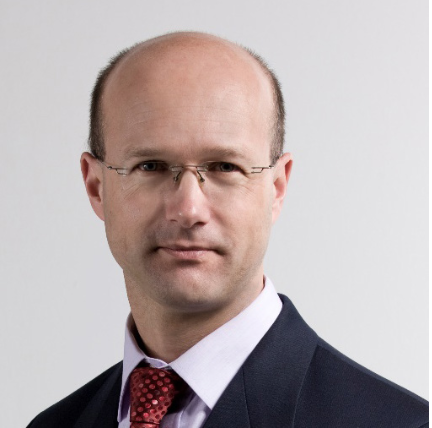
Conférence de clôture : Le Demand Driven Adaptive Enterprise (DDAE)
est un modèle managérial et opérationnel dadaptation rapide aux changements dans des environnement complexe et volatile. Il comporte un système dinnovation et de rétroaction entre 3 éléments : le Demand Driven Operating Model, le Demand Driven Sales and Operations Planning et lAdaptive Sales and Operations Planning. Le DDAE vise la protection et la promotion des flux dinformations pertinentes et des produits dans les horizons décisionnels stratégique et opérationnel afin daugmenter et de maintenir la rentabilité des capitaux. Cette conférence est la version française de celle de Carol Ptak sur le même sujet.
Christoph LENHARTZ, SCOR-P, CDDP, CDDL, Jonah, TOCICO, TFC, TCC
Christoph est Master Instructor du Demand Driven Institute et Directeur du cabinet Catena Strategies, et spécialiste des approches « flux » dans les opérations et les projets. Ancien Président de la TOCICO, il est un expert reconnu de la Théorie des contraintes et dirige des projets damélioration opérationnelle et stratégique dans lindustrie, la logistique et les services. Il a déjà mis en place plusieurs Demand Driven Operating Model.
Thursday 6, from 9 AM to 6 PM
DD case study : Sales & Operations Planing : back to the future
S&OP was first identified and introduced in the mid-eighties. It has taken quite a while for it to become mainstream but that has finally happened. Now S&OP receives a significant opportunity for change and improvement by becoming Demand Driven. Dick will explain what the significance of this change is and how DDS&OP can enable a company to become a Demand Driven Adaptive Enterprise (DDAE).
Dick LING
Dick led the introduction of Sales and Operations Planning process in the eighties. He wrote the first book on S&OP in 1988, Orchestrating Success. For over 30 years he has educated and helped companies successfully implement S&OP. His focus today is to work with the Demand Driven Institute to help them educate companies about how they can become a Demand Driven Adaptive Enterprise.

DD innovation : Demand Driven Supply Change Management
Introducing Demand Driven MRP into a company is transformational in terms of performance but, perversely, not always easy to achieve as it is so different to traditional ways of working. In this presentation, Simon describes a proven and structured approach that guarantees success and helps accelerate the delivery of those benefits.
Simon EAGLE, MSc, CDDP, CDDL, CMILT
Simon has over 20 years of industry experience working in international supply chains covering planning, logistics and ERP implementations. He now works as a consultant, is a DDI instructor and the author of the recently published Demand-Driven Supply Chain Management: transformational performance improvement (Kogan-Page 2017)

DD innovation : Managing Discontinuous Demand
Not all demand patterns are regular and not all items are sold every day. When we have low frequency sales patterns where a majority of the days the demand is 0, then the ADU is much lower than the average sales orders. This has an impact on buffer calculation and how the Net Flow equations behaves. Patrick will propose an approach on how to modify the red zone and spike threshold calculations in order to generate a viable buffer for these particular items.
Dr. Patrick RIGONI, CDDP, CDDL
Patrick is one of the founding partners of SmartChain International. He has 15 years of process industry experience where he has fulfilled several roles - from floor manager and head of a manufacturing department to project leader of strategic supply chain projects. He is a certified Master Black Belt and Lean Assessor from Johnson & Johnson.
Patrick graduated in biochemistry and molecular biology at the Université de Fribourg, Switzerland.
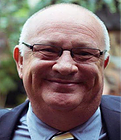
DD innovation : Portfolio Analysis and Design: A Systemic Approach.
Most companies in the world have plenty of resources for continuously launching new products. However, almost none of them have the simplest rule for taking out products of its portfolio. In this original proposal, we will present a systemic methodology, including a key DDMRP concept, for portfolio management and design.
David POVEDA, CDDP Instructor, CDDL
Director, Flowing Consultoría. Management and Operations consultant with 20 years experience in Latin America. David was the pioneer in implementing DDMRP down to the retail level and developed a comprehensive model for these environments that was included as an Appendix in the latest book by Carol Ptak and Chad Smith. He has led more than 20 DDMRP implementations in FMCG, pharmaceutical, plastics, textile and other industries.
Demand Driven SCM for SAP : A step change in implementing the Demand-Driven Adaptive Enterprise Model
IT-integration of Demand Driven MRP and Demand Driven Rhythm Wheel Planning does not require investments in completely new system landscapes. DDMRP for SAP enables companies to enter the Demand Driven World, leveraging existing SAP architectures. Learn how to become a Demand-Driven Adaptive Enterprise based on DDMRP for SAP IBP, S/4HANA and SAP SCM.
Dr. Josef PACKOWSKI
Dr. Packowski founded the international CAMELOT Group in 1996 and evolved the company into the globally leading consulting specialist for value chain management in the pharmaceutical, chemicals, CPG and manufacturing industries. In the past 25 years he did not only become a trusted adviser to the top management of leading international companies but has also been sharing his knowledge and experiences as a university lecturer and frequent speaker at conferences. As a visionary leader and pioneer in Demand-Driven LEAN Supply Chain Planning, he firmly believes that the complexity and volatility we find in todays business has become the new normal. His passion: enabling companies to master these challenges by building agile, digital, demand-driven supply chains.
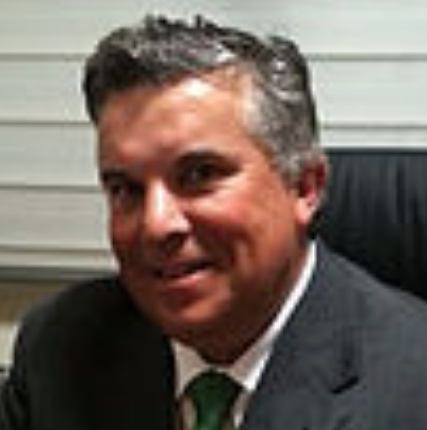
DD innovation : DDMRP Case Studies from Implementations in Spain and Portugal.
CMG Consultores has been implementing DDMRP for the past 5 years in companies from Spain and Portugal. Shifting from the traditional MRP paradigm to Demand Driven has allowed DDMRP early adopters to improve their service levels, stock levels and distributions at the same time the expediting related cost have been dramatically reduced. Featured companies: SATUERCA, COASA, MICHELIN, COPRECI, INDAUX, OLI, IFAM
Manuel CASTRO, CDDP Instructor
Manuel graduated from Industrial Engineering from Universidad de Vigo and attended Avraham Y. Goldratt Institute Academy (New Haven, USA), where he became an Expert in all of the TOC applications in 1996. He has been 20+ years assisting 100+ companies improve their bottom line results as Managing Partner at CMG Consultores. He became the first European CDDP and CMG Consultores the pioneer in DDMRP implementations in Europe.
DD innovation : Challenging DDMRP promises and comparison with MRP / Kanban
DDMRP is a recent and promising material management method. DDMRP promises are the ability to satisfy customer demands compared to well-known and widespread methods, which are MRP II and Kanban. To scientifically challenge these promises, variability sources are implemented on a case study in order to conclude on system behaviours and reliability through a Discrete Event Simulation approach.
Romain MICLO, CDDP, BSCM
Romain is an engineer and had recently a PhD on Industrial Management realised with AGILEA in collaboration with Mines Albi (Industrial Management Centre). The PhD focused on DDMRP and challenging the promises compared to MRP II and Kanban. He is now a AGILEA consultant on Supply Chain Management and a researcher on system agility and resilience issues.
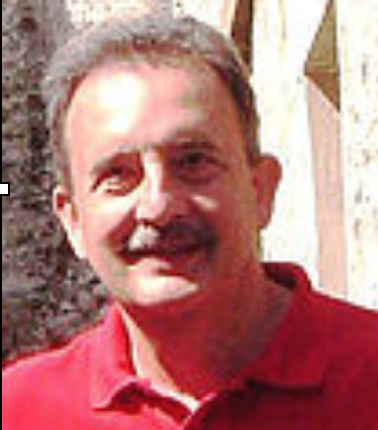
DD innovation : A Visual Inquiry On Queue Dynamics And Lead Times in Supply Chains (Just How Mean Can An Average Be?)
Correct sizing of lead times is always crucial as you deal with just any part of a supply chain, but setting them as single, fixed, numbers can be wildly misleading as variability comes in- even at small doses. The presentation uses a simulator to demonstrate the devastating effects of variability when combined with resource saturation. And points to robust ways to solve this issue definitely.
Alfredo ANGRISANI, CDDP, CDDP Instructor
Alfredo is now an independent consultant after being for over 30 years a manager in operations, sales and IT, in Italy and France. Hes worked in various sectors: industrial equipment -including being in charge for several years of Sales administration & Planning and IT with Toyota Industrial Equipment-, food, fashion, and building elements.
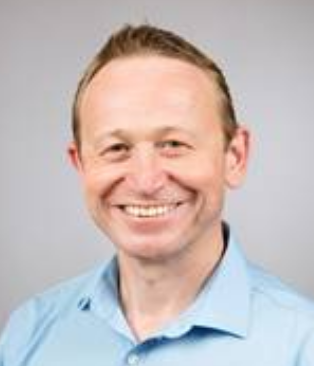
Processus SC certifiant : Six Sigma in your supply chain
Its been 30 years since Edwards Deming presented his 14 points for Management in his book out of the crisis. Point 4 : End the practice of awarding business on the basis of price tag. Instead, minimize total cost. Move toward a single supplier for any one item, on a long-term relationship of loyalty and trust. It is still not common practice amongst supply chain managers while ignoring this principle will really cost your supply chain and effect your customers and sales.
Paul ALLEN
Paul is a highly experienced process improvement specialist, using and blending lean and Six Sigma methodologies. Originally trained by Sony he specialises in developing people at all level so they can bring variable un-predictable processes under control. By taking out the variability they can deliver Productivity Improvements : Stock and Space Reduction, Faster Throughput Lead times, better on time delivery and reduced customer complaints.
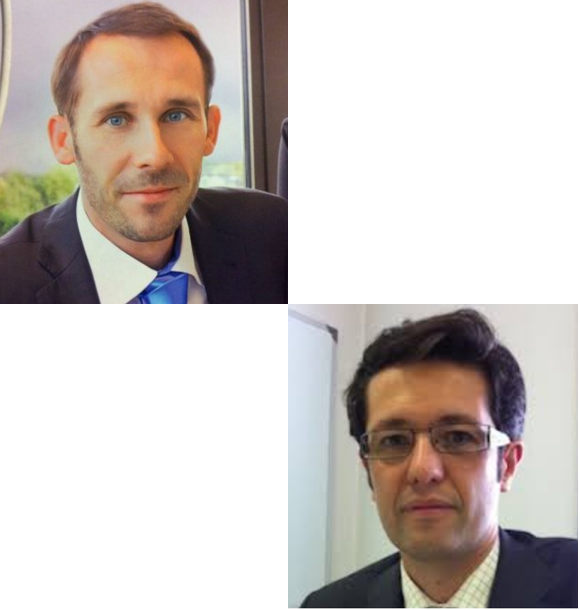
Processus SC certifiant : Conduite du changement chez Biomérieux & référentiel IMCM
Le VP Supply Chain du Groupe bioMérieux décrira la conduite du changement menée dans le cadre de la transformation Supply Chain. Ce programme international ambitieux a pour objectif daméliorer la satisfaction client, et a nécessité un accompagnement au changement renforcé afin dinscrire ses résultats dans la durée. La méthodologie est basée sur le référentiel IMCM, certification développée par l'ACMC, avec de grandes universités de Montréal, Liège et Paris.
Grégory DEBUCHY, VP Supply Chain Group, bioMerieux
Durant sa carrière, Grégory a évolué dans différents secteurs dactivité : le retail, le FMCG et le life science. Il a commencé sa carrière chez Carrefour, et rejoint ensuite le groupe Ferrero où il a été promu Directeur Supply Chain France, Benelux, Americas/CIS. Il a reçu le Prix de Manager Logistique de lannée 2011 par Logistique Magazine. Depuis 2014, il est VP Supply Chain du Groupe bioMérieux pour engager la transformation opérationnelle de sa Supply Chain.
Guillaume ALLEMAND, CPIM, IMCM
Associé dirigeant de Citwell, Guillaume accompagne depuis plus de 20 ans les entreprises de tous secteurs dactivité dans leurs projets de transformation et de management du changement, du diagnostic à la mise en uvre. Guillaume a occupé des postes opérationnels chez Pfizer, et a participé au développement des practices Supply Chain et Life Science chez Cap Gemini et Ineum Consulting. Chez Citwell, il a plus particulièrement en charge le développement commercial et marketing, ainsi que la direction du bureau de Lyon.
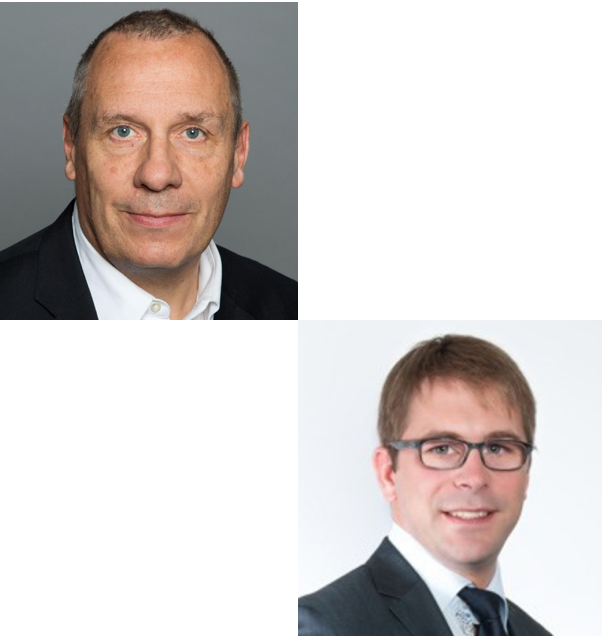
Processus SC certifiant : le modèle SCOR, une boîte à outils méthodologique
SCOR est la fois un modèle référentiel (Plan, Make, Source, Deliver, Return, Enable) qui permet de décrire lentreprise et ses processus, et une méthode danalyse et dorganisation de plans de progrès. Ces deux packages contiennent des outils qui savèrent décisifs pour lanalyse et la mise en des oeuvre de plans de transformation. 4 cas : PME aéronautique, PME mécanique de précision, grand groupe, TPE de service.
Paul SANSEAU, CSCP, CPIM, IBF, Black Belt, TFC
Paul SANSEAU est manager du cabinet BFC, partenaire de Fapics, qui propose à ses clients : analyses systémiques en supply chain management, à la pointe des techniques actuelles, expertises sur la mise en oeuvre des systèmes d'information, processus de conduite du changement, basés sur la psychologie collective et l'application des progrès dans les neurosciences.
Guillaume KIERS, SCOR-P, CDDP, TFC
Guillaume est manager chez aXoma Consultants, partenaire de Fapics. Il a débuté dans l'industrie des semi-conducteurs avant de participer à plusieurs projets en production, qualité et logistique. Il a mené des missions en France et aux USA pour des entreprises de la maroquinerie et de la mode, des cosmétiques, de l'agro-alimentaire et de l'industrie verrière.
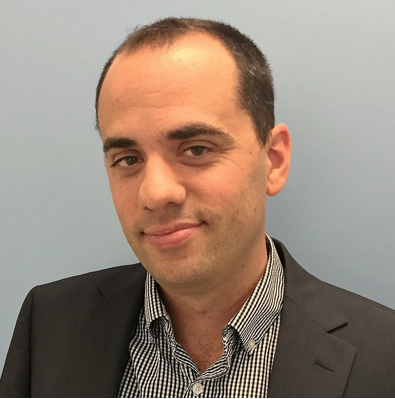
Processus SC certifiant : Re-découvrir la Théorie des Contraintes au-delà du But.
30 ans après la publication de « Le But : un processus de progrès permanent » par Eli Goldratt, quels enseignements en tirons-nous, notamment pour des environnements non manufacturiers ? Anthony FOUQUE et Christophe LENHARTZ illustreront comment la TOC peut être appliquée dune part aux projets, dautre part à la planification stratégique, en se basant sur la résolution de problèmes.
Anthony FOUQUE, CDDP, CDDL
Anthony est consultant au sein dAGILEA (France), où il promeut le corpus de connaissances TOC en tant que TOCFE et SC&CCPM implementer. Il a accumulé 12 ans dexpérience dans les industries aéronautique et Oil & Gas, où il a réalisé avec succès des implémentations S&Ops, le déploiement de processus de planning stratégiques Lean/TOC, et des implémentations Chaîne critique. Il entame à présent une thèse sur les thématiques TOC et Résolution de problèmes.
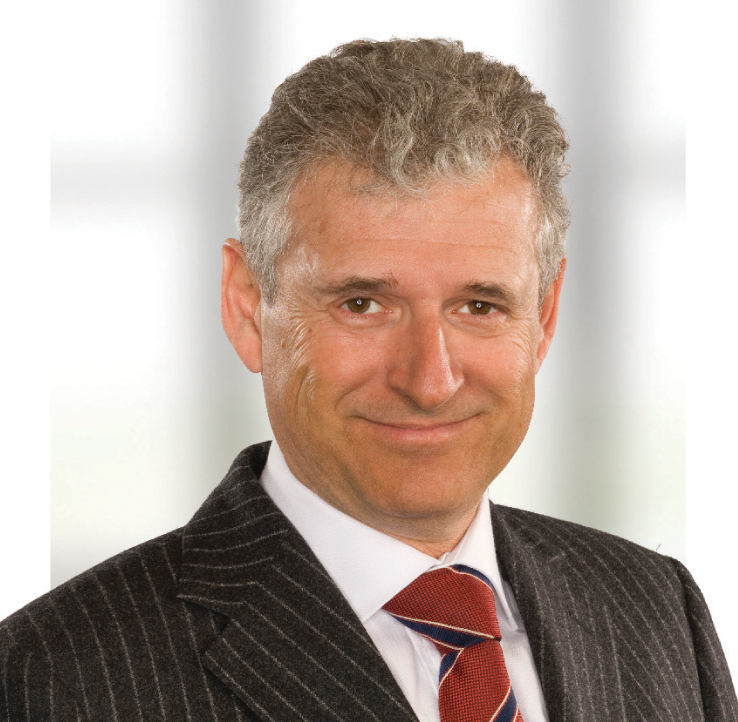
Processus SC certifiant : Integrated Business Planning ou lévolution de lespèce.
Les efforts pour intégrer les processus de planification et exécution de lentreprise ont conduit par le Calcul de Besoins Nets (MRP), MRP II, S&OP ou SIOP, à IBP au cours de plus de 50 ans dévolution industrielle. Mais que se cache derrière ces acronymes ? quel est le bon niveau de maturité dintégration á atteindre ? quels défis et avantages ? Oliver Wight vous fournira dans cette conférence et dune manière interactive des réponses.
Flavio PIETROCOLA
Flavio accompagne par des formations et du coaching les clients dOliver Wight qui souhaitent mettre en uvre les meilleures pratiques en termes de processus pour acquérir un avantage compétitif durable. Il offre ce soutien dans les domaines de la Planification Intégrée de lEntreprise ou Integrated Business Planning (IBP) et de loptimisation de la chaîne logistique.
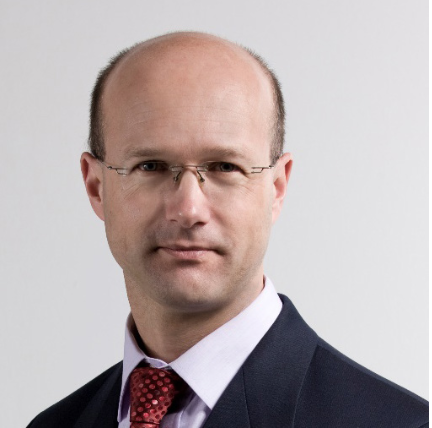
Serious game The Cool Connection
The Cool Connection est un jeu dentreprise qui permet dexpérimenter de façon concrète et ludique les liens entre les fonctions supply chain, finance, commercial et achats. Une pédagogie progressive aide les participants à comprendre et à collaborer pour améliorer les flux physiques et financiers. AXSENS vous apportera un témoignage montrant lintérêt et les possibilités de cette approche learning by doing.
Christoph LENHARTZ
Christoph est trainer The Fresh & The Cool Connection depuis plusieurs années. Il anime des séminaires en utilisant ces serious games dans le monde. Il fait partie de l'équipe qui a gagné le challenge 2017 dans la pool des trainers.
List of Fapics partners for many years :
Companies member Consulting firms Education providers Universities Software designers



